Are you dreaming of a furry companion but dreading the constant battle against shedding hair? Many dog lovers face this dilemma, wanting the joy of a canine friend without the endless vacuuming and lint rolling. Fortunately, the world of small dog breeds offers a delightful array of options for those seeking a low-shedding, compact pet. This guide explores some of the best small dog breeds that don’t shed or shed minimally, ensuring your home stays cleaner and your allergies remain at bay. Discovering these breeds is the first step to finding the perfect, petite pal for your lifestyle.
If you’re on the hunt for a dog that fits neatly into your life and leaves minimal hair behind, you’re in for a treat. This curated list dives deep into the characteristics of small dog breeds renowned for their low-shedding coats, helping you make an informed decision.
Affenpinscher
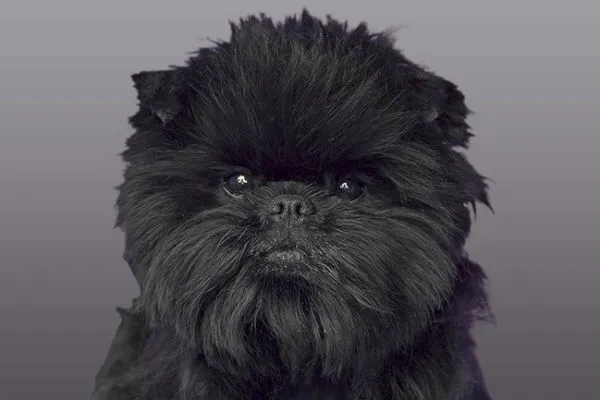 Affenpinscher dogThe Affenpinscher, aptly named “monkey-like terrier” for its expressive face and spirited nature, is a small, fearless breed that sheds very little. Their wiry coat requires minimal grooming, typically just a twice-weekly brushing, and they are also known for having very little doggy odor. This intelligent and humorous breed makes for an alert and entertaining companion. For those seeking small active dogs that don t shed, the Affenpinscher offers a unique blend of charm and low-maintenance appeal.
Affenpinscher dogThe Affenpinscher, aptly named “monkey-like terrier” for its expressive face and spirited nature, is a small, fearless breed that sheds very little. Their wiry coat requires minimal grooming, typically just a twice-weekly brushing, and they are also known for having very little doggy odor. This intelligent and humorous breed makes for an alert and entertaining companion. For those seeking small active dogs that don t shed, the Affenpinscher offers a unique blend of charm and low-maintenance appeal.
Basenji
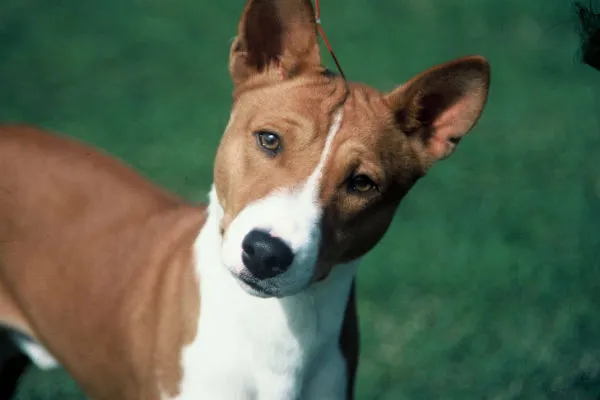 Basenji dogOften called the “barkless dog,” the Basenji is a unique breed that sheds minimally. Their short, fine coat is easy to care for, requiring only occasional brushing. Basenjis are known for their cleanliness and quiet demeanor, making them excellent choices for apartment living, provided they receive adequate daily exercise and playtime. Their hound heritage is evident in their curious and independent nature.
Basenji dogOften called the “barkless dog,” the Basenji is a unique breed that sheds minimally. Their short, fine coat is easy to care for, requiring only occasional brushing. Basenjis are known for their cleanliness and quiet demeanor, making them excellent choices for apartment living, provided they receive adequate daily exercise and playtime. Their hound heritage is evident in their curious and independent nature.
Bichon Frise
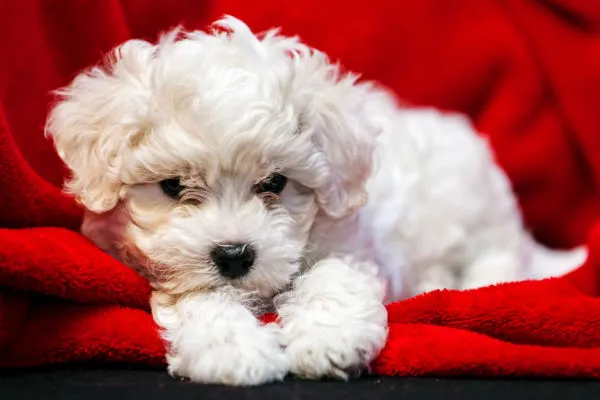 Bichon Frise dogThe Bichon Frise is a quintessential non-shedding small dog breed, often recommended for individuals with allergies. These cheerful and affectionate dogs possess a distinctive fluffy white coat that grows continuously, necessitating regular grooming, brushing, and occasional baths to maintain their signature “powder-puff” appearance. While they don’t shed much, their coat requires consistent attention to prevent matting.
Bichon Frise dogThe Bichon Frise is a quintessential non-shedding small dog breed, often recommended for individuals with allergies. These cheerful and affectionate dogs possess a distinctive fluffy white coat that grows continuously, necessitating regular grooming, brushing, and occasional baths to maintain their signature “powder-puff” appearance. While they don’t shed much, their coat requires consistent attention to prevent matting.
Bolognese
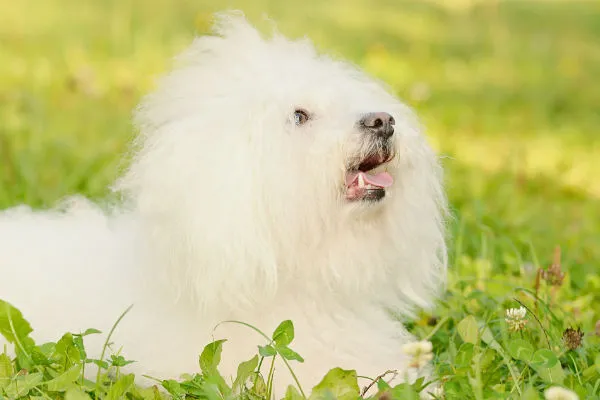 Bolognese dogSimilar to the Bichon Frise, the Bolognese boasts a unique, fluffy coat composed of hair rather than fur. This charming breed is a non-shedder, although dead hair needs to be brushed out regularly. Daily grooming is essential to keep their lovable lap dog appearance at its best. Their gentle and devoted nature makes them wonderful companions.
Bolognese dogSimilar to the Bichon Frise, the Bolognese boasts a unique, fluffy coat composed of hair rather than fur. This charming breed is a non-shedder, although dead hair needs to be brushed out regularly. Daily grooming is essential to keep their lovable lap dog appearance at its best. Their gentle and devoted nature makes them wonderful companions.
Brussels Griffon
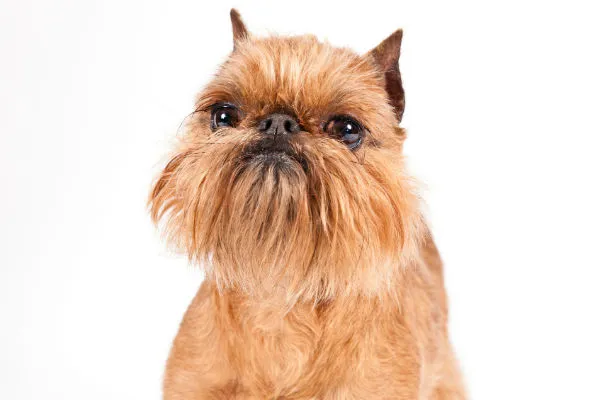 Brussels Griffon dogThe Brussels Griffon, a small but sturdy breed, comes in both smooth-coated and rough-coated varieties, both of which are minimal shedders. They thrive with regular grooming. Their small size means their exercise needs can often be met with daily walks and indoor play. These loyal dogs tend to bond closely with their families and prefer households where they receive ample attention. Exploring the list of small dogs that don t shed will often highlight this delightful breed.
Brussels Griffon dogThe Brussels Griffon, a small but sturdy breed, comes in both smooth-coated and rough-coated varieties, both of which are minimal shedders. They thrive with regular grooming. Their small size means their exercise needs can often be met with daily walks and indoor play. These loyal dogs tend to bond closely with their families and prefer households where they receive ample attention. Exploring the list of small dogs that don t shed will often highlight this delightful breed.
Chinese Crested
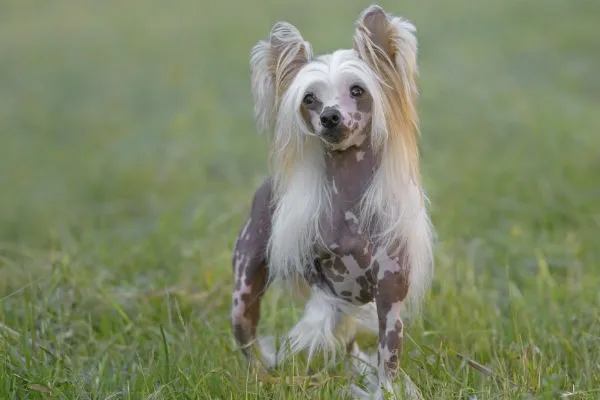 Chinese Crested dogFor ultimate avoidance of shedding, consider the Chinese Crested, which comes in two coat types: hairless and powderpuff. The hairless variety has hair only on its head, tail, and feet, while the powderpuff is covered in fine hair that sheds minimally. Hairless Chinese Cresteds require special skin care, including protection from the sun and cold, due to their increased susceptibility to skin irritations.
Chinese Crested dogFor ultimate avoidance of shedding, consider the Chinese Crested, which comes in two coat types: hairless and powderpuff. The hairless variety has hair only on its head, tail, and feet, while the powderpuff is covered in fine hair that sheds minimally. Hairless Chinese Cresteds require special skin care, including protection from the sun and cold, due to their increased susceptibility to skin irritations.
Coton De Tulear
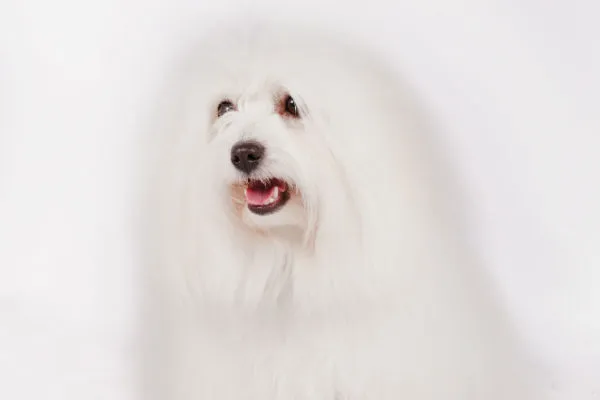 Coton de Tulear dogThe Coton de Tulear is known for its distinctive, long, fluffy coat, which is often considered hypoallergenic. This makes them an excellent choice for allergy sufferers and those seeking a small dog that doesn’t shed excessively. Daily grooming is essential to maintain their beautiful coat and keep them comfortable. Their lighthearted and gentle disposition makes them a joy to have around.
Coton de Tulear dogThe Coton de Tulear is known for its distinctive, long, fluffy coat, which is often considered hypoallergenic. This makes them an excellent choice for allergy sufferers and those seeking a small dog that doesn’t shed excessively. Daily grooming is essential to maintain their beautiful coat and keep them comfortable. Their lighthearted and gentle disposition makes them a joy to have around.
Havanese
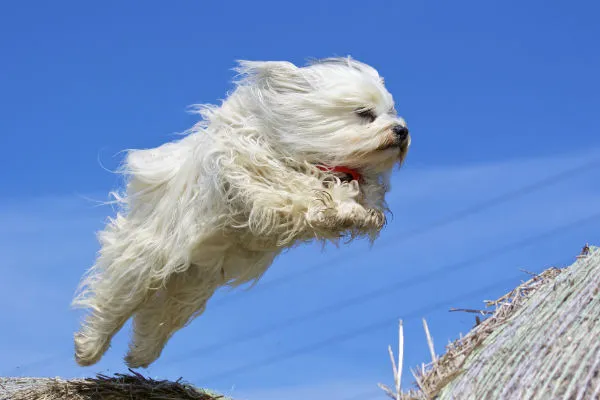 Havanese dogThese native Cuban dogs are known for their spunky charm and a coat that sheds very little. This means less time spent dealing with loose hair and more time enjoying playtime with your Havanese. Their coat requires weekly brushing and regular baths to keep them clean and healthy, ensuring their beautiful appearance and comfort.
Havanese dogThese native Cuban dogs are known for their spunky charm and a coat that sheds very little. This means less time spent dealing with loose hair and more time enjoying playtime with your Havanese. Their coat requires weekly brushing and regular baths to keep them clean and healthy, ensuring their beautiful appearance and comfort.
Maltese
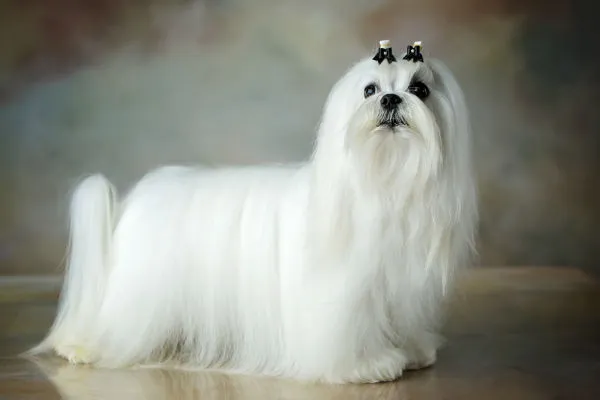 Maltese dogThe Maltese, an ancient breed with a lineage spanning three millennia, has a long, white coat that sheds minimally. This makes them an ideal lap dog. To prevent mats and keep their silky hair looking its best, regular brushing and occasional baths are necessary to remove dirt and debris. Their gentle and affectionate nature has charmed humans for centuries.
Maltese dogThe Maltese, an ancient breed with a lineage spanning three millennia, has a long, white coat that sheds minimally. This makes them an ideal lap dog. To prevent mats and keep their silky hair looking its best, regular brushing and occasional baths are necessary to remove dirt and debris. Their gentle and affectionate nature has charmed humans for centuries.
Lhasa Apso
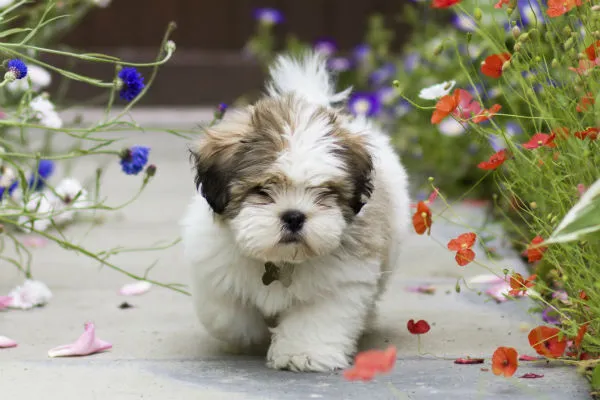 Lhasa Apso dogOriginating from Tibet, the Lhasa Apso makes an excellent, calm yet playful companion. These dogs do not shed, but their coat requires consistent maintenance. Many owners opt for a shorter “puppy cut” to simplify grooming routines, avoiding the daily brushing of their long hair. They enjoy both brisk walks and relaxing in their owner’s lap.
Lhasa Apso dogOriginating from Tibet, the Lhasa Apso makes an excellent, calm yet playful companion. These dogs do not shed, but their coat requires consistent maintenance. Many owners opt for a shorter “puppy cut” to simplify grooming routines, avoiding the daily brushing of their long hair. They enjoy both brisk walks and relaxing in their owner’s lap.
Miniature Schnauzer
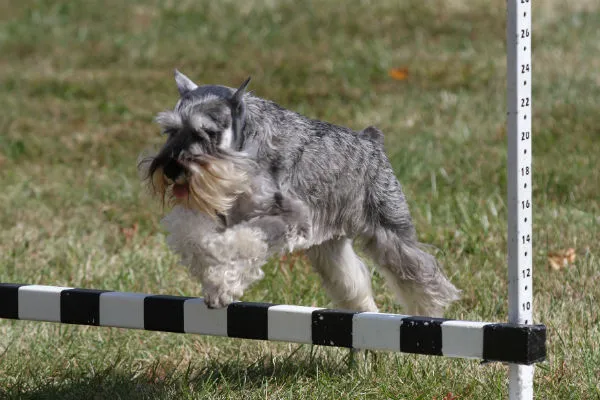 Miniature Schnauzer dogThe Miniature Schnauzer is a smart, cheerful, and highly trainable small dog. They shed very little, making them a good choice for those sensitive to dander. Adaptable to both city and country living, they thrive when close to their families. Weekly brushing and regular professional grooming will help maintain their distinctive wiry coat and handsome appearance.
Miniature Schnauzer dogThe Miniature Schnauzer is a smart, cheerful, and highly trainable small dog. They shed very little, making them a good choice for those sensitive to dander. Adaptable to both city and country living, they thrive when close to their families. Weekly brushing and regular professional grooming will help maintain their distinctive wiry coat and handsome appearance.
Poodle
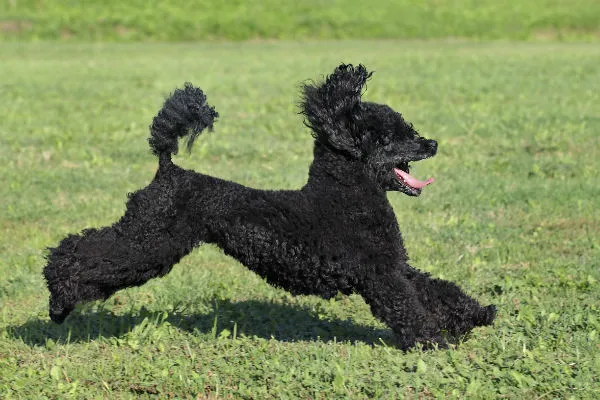 Poodle dogPoodles are perhaps the most widely recognized small dogs that don’t shed and are considered hypoallergenic. Miniature and Toy Poodles offer these sought-after qualities in intelligent, petite packages. While highly trainable and active, their curly coats do require regular grooming to prevent matting and maintain their signature look. They are consistently ranked among the best small dog breeds that dont shed.
Poodle dogPoodles are perhaps the most widely recognized small dogs that don’t shed and are considered hypoallergenic. Miniature and Toy Poodles offer these sought-after qualities in intelligent, petite packages. While highly trainable and active, their curly coats do require regular grooming to prevent matting and maintain their signature look. They are consistently ranked among the best small dog breeds that dont shed.
Scottish Terrier
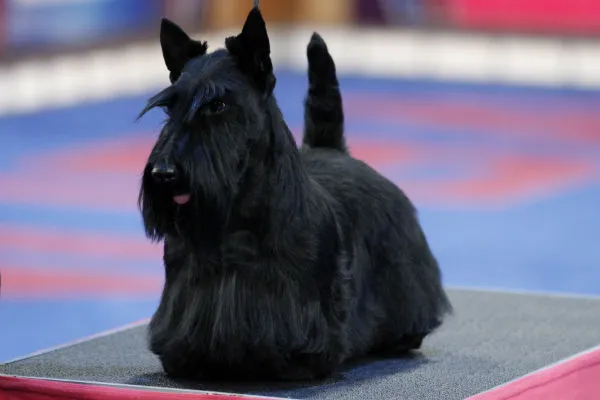 Scottish Terrier dogThe Scottish Terrier, or Scottie, is a bold and confident breed with a personality as big as its ancestry suggests. Their wiry, weather-resistant coat sheds very little, though regular brushing, grooming, and occasional hand-stripping are necessary to maintain coat health and the breed’s outline. Scotties are intelligent and independent, possessing a strong prey drive that requires careful management around smaller animals.
Scottish Terrier dogThe Scottish Terrier, or Scottie, is a bold and confident breed with a personality as big as its ancestry suggests. Their wiry, weather-resistant coat sheds very little, though regular brushing, grooming, and occasional hand-stripping are necessary to maintain coat health and the breed’s outline. Scotties are intelligent and independent, possessing a strong prey drive that requires careful management around smaller animals.
Shih Tzu
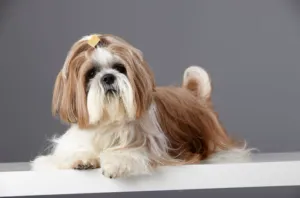 Shih Tzu dogThe Shih Tzu, historically a favored pet of Chinese royalty, is known for its long, silky, low-shedding coat. When brushed out, their hair appears regal, befitting their “little lion dog” nickname. These sturdy and lively dogs have a naturally proud carriage. Bred as indoor companions, their gentle and trusting nature makes them exceptional pets. You can find more about these delightful companions on our page for top small dog breeds that don t shed.
Shih Tzu dogThe Shih Tzu, historically a favored pet of Chinese royalty, is known for its long, silky, low-shedding coat. When brushed out, their hair appears regal, befitting their “little lion dog” nickname. These sturdy and lively dogs have a naturally proud carriage. Bred as indoor companions, their gentle and trusting nature makes them exceptional pets. You can find more about these delightful companions on our page for top small dog breeds that don t shed.
West Highland White Terrier
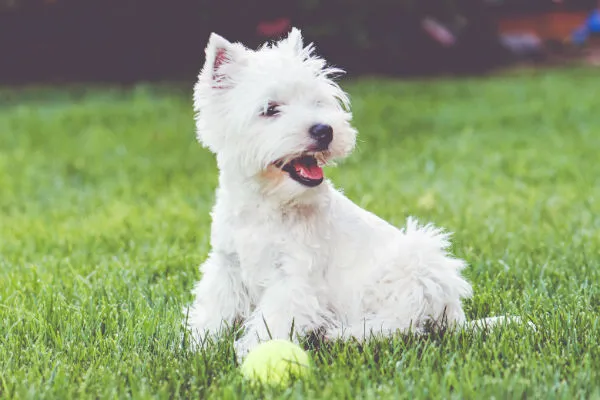 West Highland White Terrier dogAffectionately known as Westies, the West Highland White Terrier has a coarse, white coat that sheds very little. This sturdy breed is intelligent, loyal, happy, and highly entertaining. They are curious dogs with moderate energy levels and a characteristic terrier independence that can sometimes present a training challenge.
West Highland White Terrier dogAffectionately known as Westies, the West Highland White Terrier has a coarse, white coat that sheds very little. This sturdy breed is intelligent, loyal, happy, and highly entertaining. They are curious dogs with moderate energy levels and a characteristic terrier independence that can sometimes present a training challenge.
Xoloitzcuintli
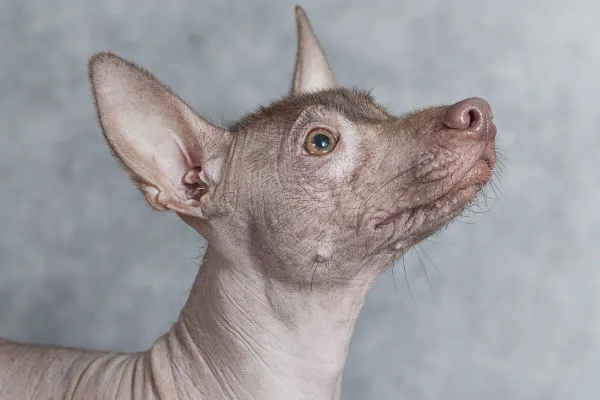 Xoloitzcuintli dogAlso recognized as the Mexican Hairless dog, the Xoloitzcuintli is an ancient and rare breed that exists in hairless and coated varieties. The hairless type has minimal hair on its head, tail, and feet, while the coated variety features a very short, fine coat that sheds minimally. Like other hairless breeds, Xolos require extra skin care to protect them from environmental elements. They are attentive watchdogs, affectionate companions, and known for their tranquil demeanor at home.
Xoloitzcuintli dogAlso recognized as the Mexican Hairless dog, the Xoloitzcuintli is an ancient and rare breed that exists in hairless and coated varieties. The hairless type has minimal hair on its head, tail, and feet, while the coated variety features a very short, fine coat that sheds minimally. Like other hairless breeds, Xolos require extra skin care to protect them from environmental elements. They are attentive watchdogs, affectionate companions, and known for their tranquil demeanor at home.
Yorkshire Terrier
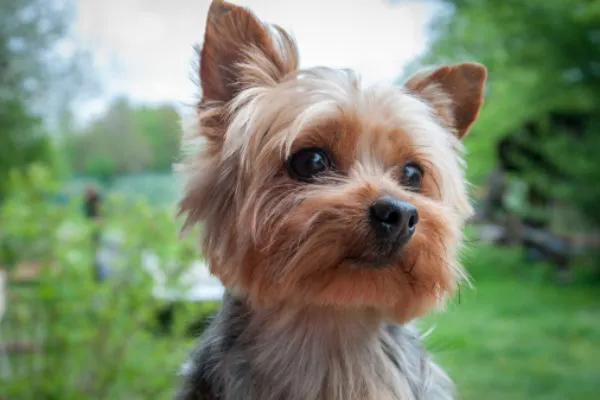 Yorkshire Terrier dogThe Yorkshire Terrier, or Yorkie, is a spirited, affectionate, and highly personable Toy breed. These spunky lap dogs are popular for a reason: they do not shed, and their silky coats are beautiful when brushed daily. Despite their delicate appearance, Yorkies have a fearless terrier spirit, historically used for hunting vermin. They are equally content to be a lap dog as they are to be an active companion. Discovering these breeds helps identify small dog breeds that dont shed a lot.
Yorkshire Terrier dogThe Yorkshire Terrier, or Yorkie, is a spirited, affectionate, and highly personable Toy breed. These spunky lap dogs are popular for a reason: they do not shed, and their silky coats are beautiful when brushed daily. Despite their delicate appearance, Yorkies have a fearless terrier spirit, historically used for hunting vermin. They are equally content to be a lap dog as they are to be an active companion. Discovering these breeds helps identify small dog breeds that dont shed a lot.
Other Low-Shedding Terrier Breeds
The Terrier group is a rich source of small dogs that shed minimally or not at all. Breeds with wiry or coarse coats tend to shed less than others, making them excellent choices for individuals seeking low-shedding companions. Beyond those already listed, consider other Terrier breeds known for their low-shedding characteristics.
While choosing a non-shedding dog breed can significantly reduce hair around your home, remember that no dog breed is entirely maintenance-free. Thorough research into each breed’s temperament, exercise needs, and grooming requirements is crucial to ensure a good match for your lifestyle. Always prioritize purchasing from a reliable breeder, providing a high-quality diet, and scheduling regular veterinary check-ups to ensure your dog’s optimal health and well-being.
